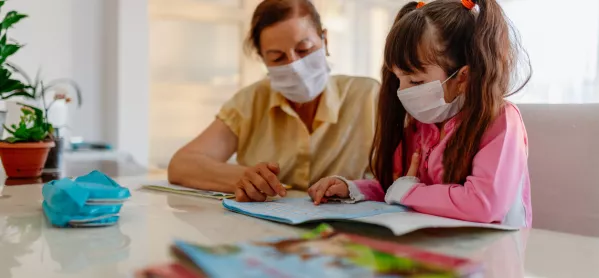- Home
- Exclusive: Some teachers ‘facing needless virus risk’
Exclusive: Some teachers ‘facing needless virus risk’

Too many staff are being drafted in than are needed to help schools stay open during the coronavirus crisis, putting health at risk unnecessarily, teachers have warned.
The overstaffing “problem” has led to teachers being asked to clean out cupboards and refresh displays, according to the NEU teaching union.
Mary Bousted, joint general secretary of the NEU, told Tes that the issue is down to schools being given “a lack of planning time”, and is “sorting itself out” as schools adapt to fluctuating demand.
However, she warned that while most school leaders are doing “a really good job”, a minority of leaders are still “finding it hard to stop exercising the levers of control”.
Coronavirus: ‘Test all teachers to keep them safe’
Heads: Fewer teachers may risk work
Background: UK in lockdown, but no change for schools
Tes also spoke to a head of department in a secondary school, who said they were concerned that “schools are not really realising what they’re actually supposed to be doing”.
“I just sort of feel in general that it’s been put together with a view to making the workload fair, and kind of compelling everybody to be involved, which I have no issue with,” they said.
“But it’s not been thought in terms of what the primary objective is - which is containing this virus and limiting social contact.”
A school admin staff member told Tes: “I feel like we have more than the minimum number of staff necessary.
“I don’t feel safe going in, and I know I am endangering my family unnecessarily.”
Dr Bousted said: “This is really about ethical and moral leadership; it’s about recognising that your staff are human beings, they’re not your property, and they have lives, and they have dependents and responsibilities.
“And if you are going to lead effectively you will look after them as best you can, while fulfilling the duty that teachers and support staff and leaders are doing at the moment.
“But if we’re going to ask them to make that sacrifice then we have to take care of them as much as possible.
“The fewer staff you have in, the less chance you have of them catching the virus and spreading it on.”
She said things had been “difficult” for school leaders because they only had “one day to plan” for closures.
As a result, at the beginning of the week, the union received reports of “all the staff being called in”.
“If they weren’t looking after the children, teachers were being told: ‘You can do deep cleaning, and you can take down displays and put new displays up’,” Dr Bousted said.
“We very quickly got onto that and we think that that is sorting itself out.
“So I think that was a problem, I think it’s still a problem in some cases, and it’s something that we’re working on.”
Asked what proportion of schools are affected by the overstaffing problem, Dr Bousted said: “I think it’s a changing situation.
“I think, as schools adapt to how many children they’ve got in and how they can run those schools safely with social distancing, they are adjusting their staffing.
“But when they’re not, they really need to. It is not acceptable to have more staff than is needed in the school. It is never acceptable to have whole staff meetings.
“And it is not acceptable to have teaching staff in being told to clean cupboards and take down displays. And that’s not acceptable for support staff either.”
Dr Bousted said schools “should be operating on the minimum number of staff required to do childcare”, and must be “really well-cleaned, and really as safe as they can be”.
She added: “The school leadership must be operating on a rota basis... so that staff get time away and time to rest and recuperate.”
Dr Bousted said the problem was partly down to “a lack of planning time”, but “very few” leaders may also be “finding it hard to stop exercising the levers of control, and want to see their staff...they get worried because their staff won’t be seen”.
“The thing I have to say to them is if they don’t lead responsibly with the health of their staff and their safety among their first concerns, then the school won’t run,” she said.
Register with Tes and you can read two free articles every month plus you'll have access to our range of award-winning newsletters.
Keep reading with our special offer!
You’ve reached your limit of free articles this month.
- Unlimited access to all Tes magazine content
- Save your favourite articles and gift them to your colleagues
- Exclusive subscriber-only stories
- Over 200,000 archived articles
- Unlimited access to all Tes magazine content
- Save your favourite articles and gift them to your colleagues
- Exclusive subscriber-only stories
- Over 200,000 archived articles



